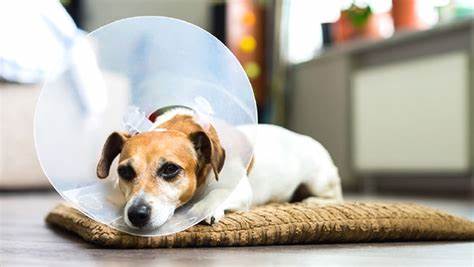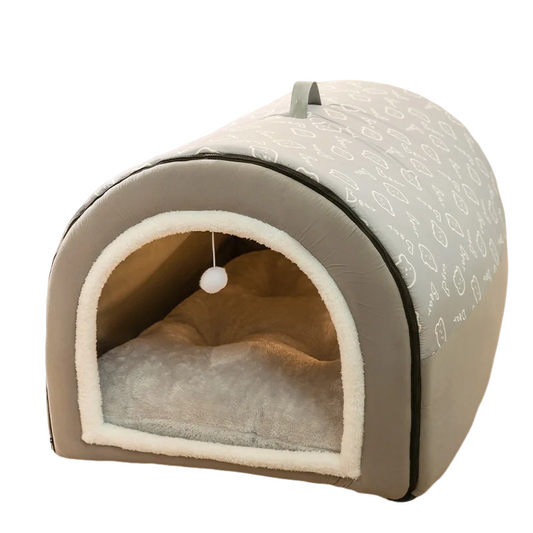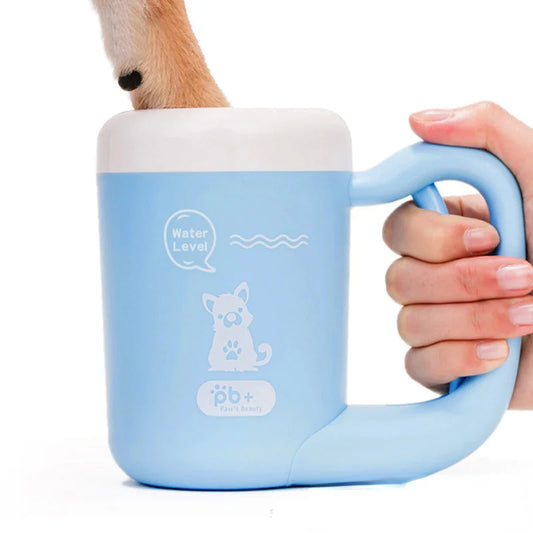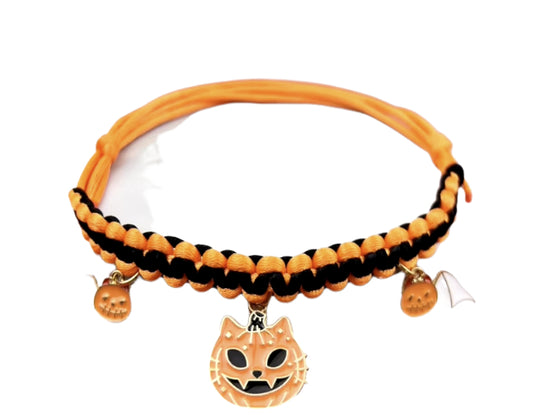
Why Neutering Dogs is Essential: A Comprehensive Guide to Benefits, Health, and Behavior
Share
Introduction
Dog neutering (for males) and spaying (for females) are essential aspects of responsible dog ownership. These veterinary procedures not only help reduce the issue of pet overpopulation but also provide significant health benefits for dogs and improve their overall behavior. From reducing the risk of certain cancers to minimizing aggressive tendencies and roaming behavior, spaying and neutering can greatly enhance your pet’s quality of life.
In this blog, we’ll explore the top reasons to neuter your dog, including the medical, behavioral, and societal advantages. Whether you’re a new dog owner or considering the procedure for your current pet, understanding the long-term value of neutering can lead to a healthier, happier, and more well-behaved dog.
1. Health Benefits of Neutering: Preventing Serious Diseases
One of the most important reasons to neuter or spay your dog is to prevent various dog health problems, especially those related to the reproductive system. Spaying and neutering provide long-term health benefits for dogs, reducing the risk of serious diseases and extending your pet’s lifespan. Here’s how these procedures help both male and female dogs:
1.1 For Male Dogs:
- Prevention of Testicular Cancer: Neutering completely eliminates the risk of testicular cancer in dogs, a common and potentially fatal condition in unneutered males. By removing the testicles, this risk is fully eradicated, supporting a healthier and longer life.
- Reduced Prostate Issues: As dogs age, unneutered males are at higher risk of dog prostate problems, including benign prostatic hyperplasia (BPH), prostatitis, and prostate cancer. Neutering significantly reduces the likelihood of these conditions, supporting better urinary and reproductive health.
- Lower Risk of Hernias and Tumors: Neutering helps prevent perineal hernias and lowers the risk of certain types of tumors, especially those linked to hormonal imbalances in male dogs.
1.2 For Female Dogs:
- Reduced Risk of Mammary Cancer: Spaying your dog before her first heat cycle can reduce the risk of mammary gland tumors in dogs by up to 90%. This is a major preventive step against one of the most common cancers in unspayed females.
- Prevention of Pyometra: Pyometra is a serious and often fatal uterine infection in female dogs. Spaying eliminates the risk of pyometra entirely by removing the uterus and ovaries, safeguarding your dog’s reproductive health.
- Longer Lifespan: Dogs that are neutered or spayed typically enjoy longer and healthier lives, thanks to the lower risks of reproductive-related cancers, infections, and hormonal diseases.
By choosing to spay or neuter, you're making a proactive choice for your dog’s long-term health and well-being.
Recommended Product:
- Comfortable Dog Bed: After surgery, your dog needs a supportive and cozy recovery bed. This orthopedic dog bed offers optimal cushioning, reduces pressure on joints, and provides the perfect place for post-surgery rest and comfort.

2. Behavioral Improvements: A Calmer, Better-Behaved Dog
Neutering is also associated with significant behavioral improvements in dogs that can make everyday life more peaceful and enjoyable for both pet and owner. Many unwanted behaviors in dogs—especially those related to mating instincts—can be reduced or eliminated through spaying or neutering.
2.1 Male Dogs:
- Reduction of Aggressive Behavior: Unneutered male dogs often exhibit aggression towards other dogs, driven by high testosterone levels and a natural instinct to compete for mates. Neutering reduces testosterone production, which often leads to a noticeable drop in aggressive behavior, making your dog more social and manageable.
- Less Marking Territory: Intact male dogs are more prone to urine marking around the house and yard as a way of claiming territory. This behavior can be frustrating for dog owners. Neutering significantly reduces or eliminates urine marking, helping maintain a cleaner, odor-free environment.
- Decreased Roaming and Escaping: Driven by the urge to find a mate, unneutered dogs are more likely to escape or roam away from home, increasing their risk of getting lost, injured, or hit by vehicles. Neutering reduces this roaming instinct, making your dog safer and more content to stay at home.
2.2 Female Dogs:
- No More Heat Cycles: When in heat, female dogs may display restlessness, vocalization, and escape attempts. These behaviors can be challenging to manage. Spaying eliminates heat cycles in female dogs, reducing these disruptive behaviors and making your dog more predictable and easier to care for.
- Reduced Anxiety and Stress: Hormonal changes during a heat cycle can cause anxiety and stress in female dogs. Spaying helps stabilize hormone levels, promoting a calmer and more emotionally balanced pet.
By choosing to spay or neuter your dog, you are not only preventing undesirable behaviors but also fostering a more obedient, calm, and well-adjusted companion.
3. Preventing Overpopulation: A Responsible Choice
Dog overpopulation is a pressing global issue, with millions of unwanted dogs entering shelters each year. Sadly, many of these animals face euthanasia due to the shortage of available homes. Spaying and neutering pets is a proven solution that helps control the population and improves overall animal welfare.
- Reducing Stray Dogs: Every unneutered dog has the potential to produce dozens—if not hundreds—of puppies over their lifetime. Many of these end up as strays, contributing to the rising number of homeless dogs on the streets. By neutering your dog, you directly help reduce the number of stray animals, creating safer communities and decreasing the risks of disease and injury among roaming dogs.
- Easing the Burden on Animal Shelters: Overcrowded animal shelters and rescue organizations are often overwhelmed by the number of dogs needing care. Many shelters are forced to make heartbreaking decisions due to space and resource limitations. Neutering helps lower the influx of unwanted dogs, giving those already in shelters a better chance of adoption and a loving forever home.
By spaying or neutering your dog, you are actively contributing to a more humane and sustainable world. It's a compassionate choice that benefits your pet, your community, and future generations of animals.
4. Better Socialization and Integration in Public Spaces
Neutering your dog not only improves health and behavior, but it also makes it easier for them to thrive in social settings like dog parks, pet daycares, and training classes.
- Improved Socialization: Intact male dogs often display dominant or territorial behaviors, especially toward other males. These behaviors can lead to tension, confrontations, or even fights. Neutered dogs are typically calmer and more sociable, making walks and trips to the dog park more enjoyable and stress-free.
- Access to More Services: Many doggy daycares, boarding facilities, and even group training classes require dogs to be neutered. By neutering your pet, you ensure they can participate in group activities, receive proper socialization, and access a broader range of services.
Recommended Products
-
Dog Recovery Cone (E-Collar)
After surgery, it’s crucial to prevent your dog from licking or biting the incision site. This soft yet durable E-collar keeps your dog safe during recovery while allowing comfortable movement. -
Portable Pet Water Bottle
Proper hydration is essential during recovery. This spill-proof, travel-friendly water bottle makes it easy to offer clean water to your dog on walks, trips, or vet visits.

5. Spaying and Neutering Myths: Debunking Common Misconceptions
Despite the many benefits of neutering, there are still misconceptions that deter dog owners from choosing the procedure. Let's clear up some of the most common myths:
-
Myth: Neutering Will Make My Dog Fat
While it’s true that neutering may cause a slight decrease in metabolism, it won’t automatically make your dog overweight. With a balanced diet and regular exercise, your dog can maintain a healthy weight, just like before the procedure. Monitoring their food intake and ensuring adequate activity will keep them fit. -
Myth: Neutering Will Change My Dog's Personality
Neutering doesn’t affect your dog’s core personality. They’ll still be the same playful, loving companion you know and adore. However, neutering can help reduce negative behaviors such as aggression, urine marking, and roaming, making for a calmer and more well-behaved pet. -
Myth: My Dog Needs to Experience Breeding Before Being Neutered
There’s no medical or emotional requirement for dogs to breed. In fact, neutering your dog at the appropriate age (usually between 6 months to 1 year) is the best way to ensure their health and prevent unwanted litters. It won’t affect their emotional well-being, and it helps control the pet population.
6. When to Neuter Your Dog: Timing Matters
The optimal time for neutering your dog varies based on several factors, including their size, breed, and individual health needs.
For Most Dogs:
-
The general recommendation is to neuter between 6 months and 1 year of age. This is typically when dogs reach maturity, and the procedure can help prevent unwanted litters and health issues.
For Larger Breeds:
-
Larger breeds, however, may benefit from waiting a bit longer to allow for full skeletal development. Neutering too early in these breeds may interfere with their growth, so it's often suggested to wait until they are around 18 to 24 months of age.
Consult Your Veterinarian:
-
Every dog is different, so it’s essential to consult with your veterinarian to determine the best time for neutering based on your dog’s specific needs, health status, and breed characteristics.
By making an informed decision about the timing, you can help ensure that your dog remains healthy and happy both before and after the procedure.
7. Post-Surgery Care: Ensuring a Smooth Recovery
Proper post-surgery care is vital to ensure that your dog recovers quickly and without complications. Here are some important steps to follow:
7.1 Keep the Area Clean:
-
It's essential to keep the surgical site clean and dry to prevent infection. Avoid letting your dog lick or chew at the incision site. You can use an Elizabethan collar (E-collar) to prevent this behavior and help protect the area from additional irritation.
7.2 Limit Activity:
-
Restricting your dog’s activity is crucial during the recovery period. This helps prevent any strain on the incision and reduces the risk of the area reopening. Avoid running, jumping, or rough play until your veterinarian clears your dog for normal activities, typically after 7 to 10 days.
7.3 Monitor for Signs of Infection:
-
Keep an eye out for signs of infection, such as redness, swelling, or discharge at the incision site. If you notice these symptoms or if your dog is acting unusually lethargic, contact your veterinarian immediately. Early intervention can prevent more serious complications.
By following these steps, you’ll help your dog recover comfortably and ensure that the neutering procedure has long-lasting positive effects.
Conclusion
Neutering is one of the most responsible decisions you can make as a dog owner. The benefits are far-reaching and contribute to a healthier, happier life for your dog. Not only does neutering help prevent potential health problems, but it also improves behavior and plays a crucial role in reducing overpopulation. By neutering your pet, you're giving them a chance at a longer, calmer, and more fulfilling life.
Additionally, neutering contributes to the greater community by helping reduce the number of homeless animals. Each neutered dog helps prevent unwanted litters, directly impacting the overall stray dog population.
If you are considering neutering your dog, it’s essential to consult with your veterinarian to determine the best timing and procedure based on your dog’s health and breed. With proper post-surgery care, you can ensure a smooth recovery, enabling your dog to experience the many benefits of this procedure.
By choosing to neuter your dog, you are making a significant, positive impact on both your pet’s life and the broader community.










